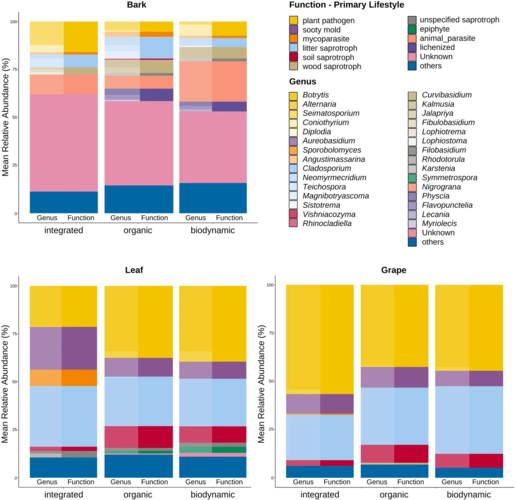Fungal communities play an essential role in plant health, whether as pathogens or beneficial symbionts. They are present in every agricultural soil, but are also found above ground on all parts of the plant, and by no means all of them lead to damage or disease. A team of researchers led by Katharina Steng has investigated how different agricultural systems affect the composition of above-ground fungal communities. Their aim is to promote healthy and productive plants and develop strategies for sustainable agriculture.
Modern agriculture is increasingly recognizing the importance of the microbiome for sustainable systems. Vineyards, where pesticides are often used intensively, are a good place to study the impact of different agricultural systems on microbial communities.
The study took place in a vineyard planted with Riesling vines in Geisenheim, Germany, in 1991. Since 2006, some plots have been cultivated either biodynamically, organically or according to the guidelines of integrated agriculture. Samples were taken from the bark, leaves and grapes of the vines. These were then analyzed using DNA sequencing to determine the diversity and functional characteristics of the fungal communities.
